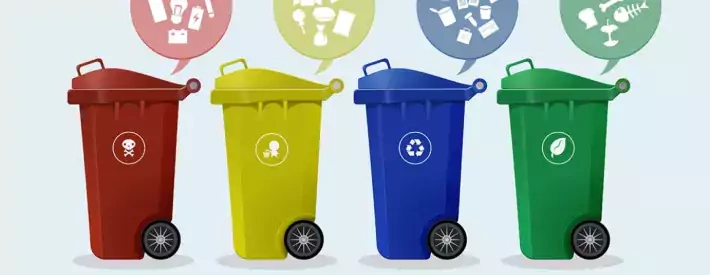Roadmap for a sustainable industry: The Welsh waste management revolution

The Welsh waste management landscape is undergoing a transformation, with new regulations set to take effect this year. As pioneers in sustainability and recycling, Wales aims to lead by example with the 'Towards Zero Waste' strategy, emphasising a 70% recycling target by 2025.
The regulations, effective from 6th April 2024, mandate that businesses in Wales need to separate various types of waste for recycling. Items include food waste, paper and card, glass, metal, plastic, cartons, unsold small waste electrical and electronic equipment (sWEEE), and unsold textiles. That could sound relatively straightforward, but the regulations also impose bans on sending food waste to sewers, incineration plants, and landfills. These measures aim to improve businesses' environmental footprint and align with Wales's broader sustainability and circular economy goals.
Automotive impact
The automotive sector is already accustomed to managing hazardous waste, but the upcoming regulations signal a broader scope. Technological advancements in automotive have led to changes in materials used, requiring a comprehensive reassessment of waste management strategies. While the essence of these regulations aligns with existing practices, it calls for an expansion of efforts to segregate recyclables and manage waste more efficiently.
The journey towards sustainability is a collective effort, and the automotive sector in Wales is poised to drive positive change on this path. By building on existing sustainability practices and embracing innovative waste management strategies, the industry can not only meet the new requirements but also reinforce its leadership in driving sustainability. Engaging with waste collection services and exploring ways to reduce waste production are immediate steps towards compliance.
Meeting demand
Beyond environmental considerations, adopting Wales's new waste management regulations aligns businesses with growing consumer and employee demands for sustainability. As consumers increasingly base purchasing decisions on a company's environmental footprint, businesses can enhance their appeal to an environmentally conscious customer base.
Similarly, employees seek workplaces that reflect their values, making companies implementing these practices more attractive to top talent, boosting staff morale, and increasing retention rates.
Sustainability can also become a powerful tool from a marketing perspective, differentiating businesses in a competitive market. Communicating a commitment to sustainable practices enhances brand image, generates positive publicity, and opens up new markets, particularly among eco-conscious consumers. Compliance with regulations is not just about ticking boxes; it's an investment in the future, the environment, and the community served.
To facilitate this transition, businesses can refer to official resources on the GOV.WALES website for detailed guidance. Information on separated waste collections, workplace recycling changes, and specific advice for adapting to these changes is available under the respective headings. Staying informed and proactive is key to navigating this shift successfully.




